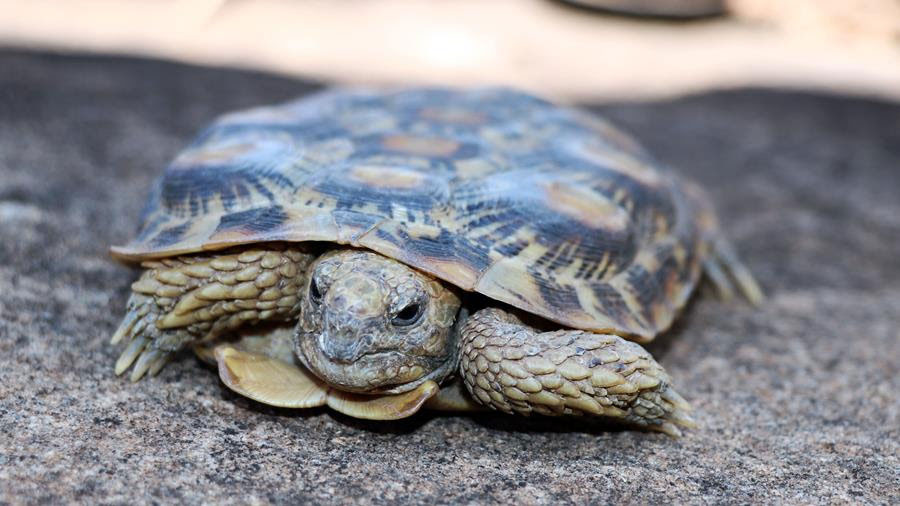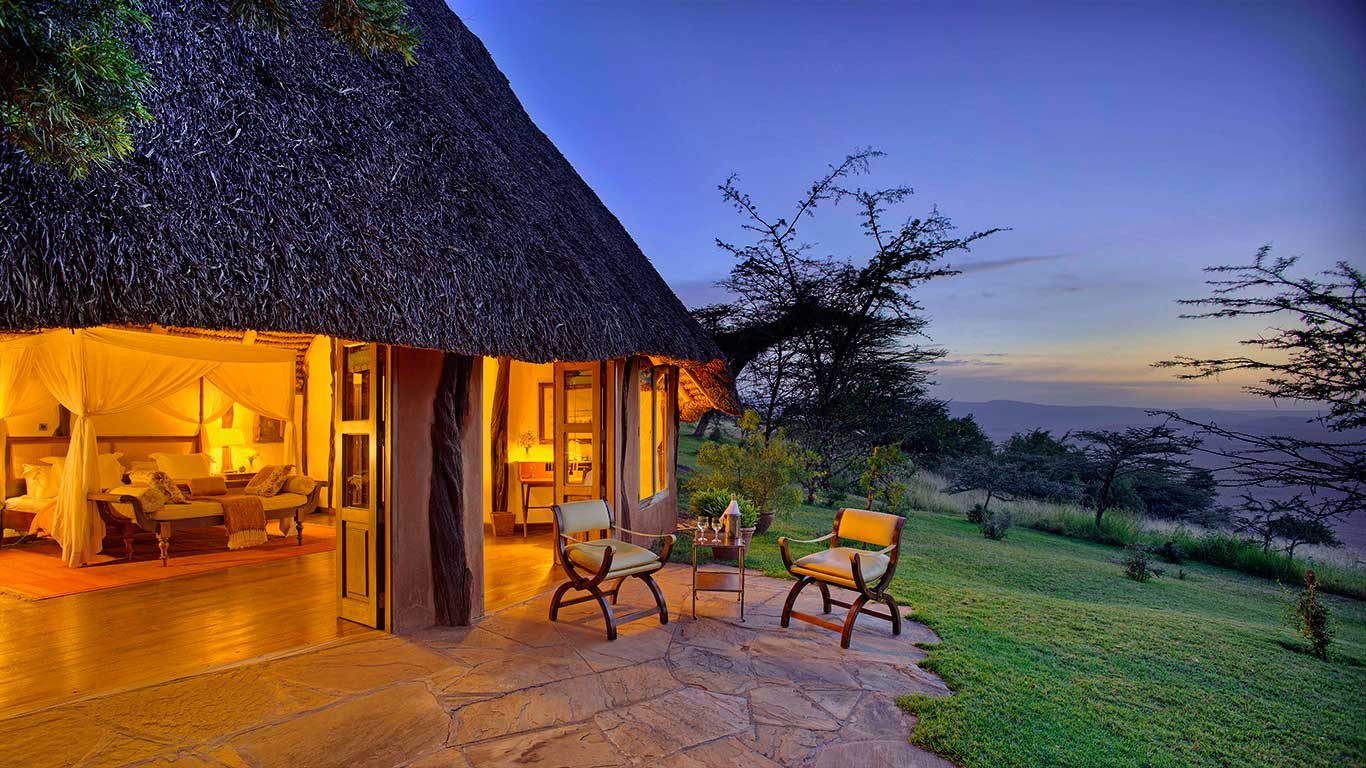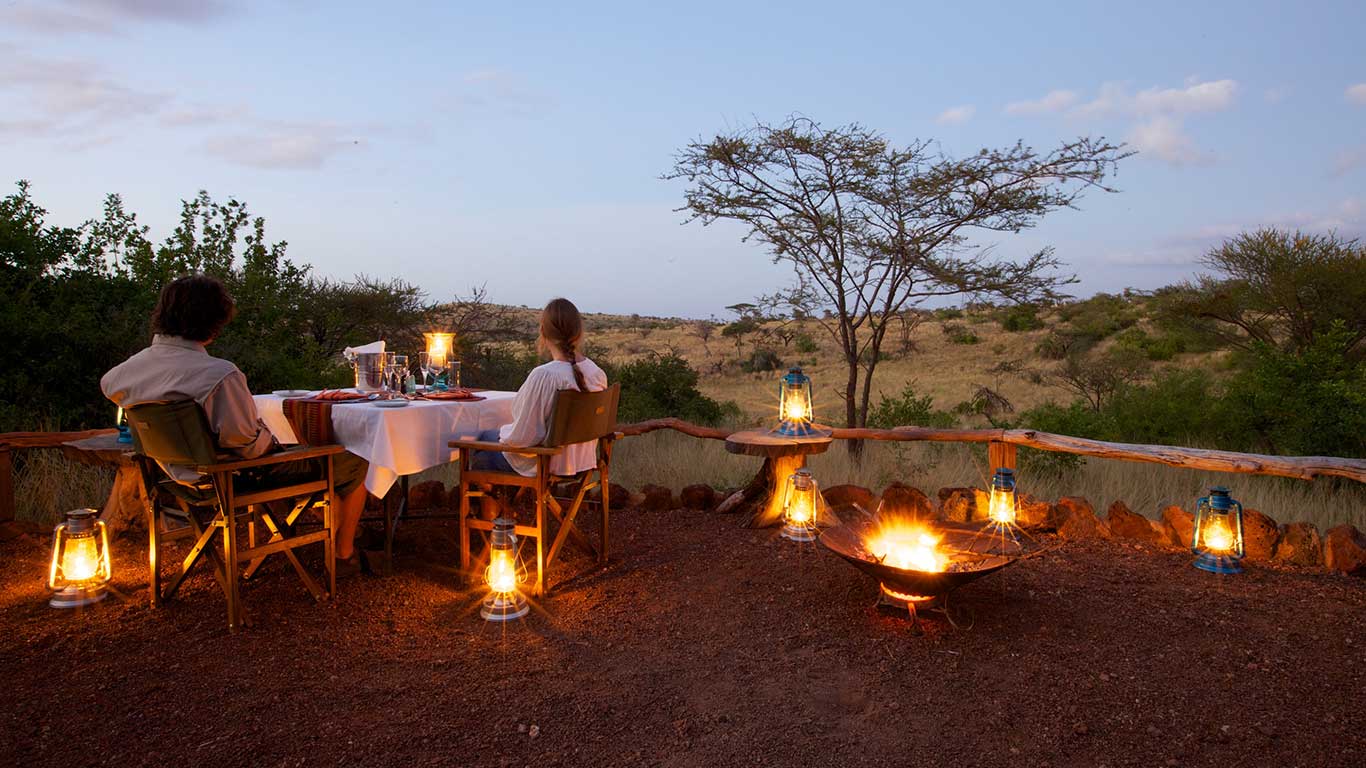
A preliminary assessment on Lewa has discovered a small population of the critically endangered Pancake tortoise.
Seven Pancake tortoises were found on the Conservancy, in the first-ever effort to establish the occurrence of the endangered species. The discovery extends the distribution range of the species in Kenya with past studies showing that the distribution of the tortoise in Kenya lies within the arid and semi-arid corridor from Marsabit County southwards to Kitui County. Scientists from Lewa and the National Museum of Kenya participated in the joint effort to design an appropriate conservation strategy for Pancake tortoise and other herpetofauna on the Conservancy.
Due to specialised habitat requirements, the distribution of the Pancake tortoise is restricted and patchy. The tortoise population was recorded from four out of 14 potential sites identified during the assessment. The findings also documented the highest altitude occurrence (1,647 Mean Sea Level) for pancake tortoise in Kenya to date.
The Pancake tortoise whose scientific name is Malacochersus tornieri is among the six land tortoises mostly found in East Africa. Unlike the typical tortoises, the pancake tortoise is unique in its morphology. It is small in size, flattened dorso-ventrally and a flexible soft-shelled that allows them to live in narrow rock crevices. Elsewhere, populations have also been recorded in Tanzania and Zambia. It is considered that geology, vegetation, altitude, and climate are the main factors that limit the distribution of Pancake tortoises. For instance, more than 80 per cent of Kenyan records are below 1,000m Mean Sea Level.
Head of Conservation and Wildlife, Geoffrey Chege, says that there is a need to design a long-term conservation strategy for Pancake tortoise and other herpetofauna on Lewa, as well as carry out detailed studies and a regular monitoring framework. “Even though this discovery is significant partly due to the protection status of Lewa Wildlife Conservancy, this population is rather isolated and there is a need for further studies to determine its viability,” said Chege.
The occurrence is highly influenced by the availability of suitable micro-habitats. Generally, they inhabit rock crevices of any orientation from horizontal to vertical. Openings of choice tend to narrow backward from the entrance. Gently sloping hillsides are more suitable than steeper areas and cliffs. Therefore, only a small proportion of the general habitat is normally inhabited by tortoises. The Pancake tortoise is currently listed as Critically Endangered (CR) by the International Union for Conservation of Nature (IUCN). Live animal collection for the international pet trade is the biggest threat to the tortoise.
Habitat degradation from rock destruction is also a major threat. Other threats include deforestation and cultivation. A higher conservation measure for the Pancake tortoise was recently achieved when the 18th Conference of Parties of CITES adopted a proposal for its listing in Appendix I. International trade in the tortoise is now prohibited except under exceptional circumstances, for example, research purposes.
Lewa Wildlife Conservancy covers 65,000 acres of pristine African wilderness. With dramatic views of snow-capped Mt Kenya to the south, and the arid lands of Tassia and Il Ngwesi to the north, Lewa showcases a range of wild habitats from highland forests, wide open grasslands, melt-water mountain springs and acacia woodland and supports over 440 bird species. More than 70 different animal species roam the vast grasslands at the foot of Mt Kenya.
Elewana Collection has two properties located in the Conservancy, Elewana Lewa Safari Camp and Elewana Kifaru House, which are the only two tourism properties owned by the Conservancy itself, with the aim of boosting the conservancy’s revenue through camp occupancy. All profits and conservancy fees generated by each camp are reinvested directly into the conservation and community efforts of Lewa Wildlife Conservancy.
Elewana Kifaru House

Guests can relax and feel at home, choosing how they spend their time, whether it is lying by the picturesque infinity pool gazing out over the plains or sitting in the library leisurely reading a book, time stands still at Elewana Kifaru House. Each of the five cottages offer spectacular views with well-appointed bedrooms, complete with opulent four poster beds and generous en-suite bathrooms. Intimate and homely atmosphere offering true luxury in the bush with unrivalled wildlife viewing.
Elewana Lewa Safari Camp

Elewana Lewa Safari Camp is a unique and exclusive retreat, which offers privileged access to 65,000 acres of private protected wilderness. Featuring large tented bedrooms each with its own veranda and full en-suite bathrooms. Enjoy a host of activities from horse or camel rides, visit to the new joint operations centre and cultural experiences or simply relax by the swimming pool and enjoy the tranquillity.

